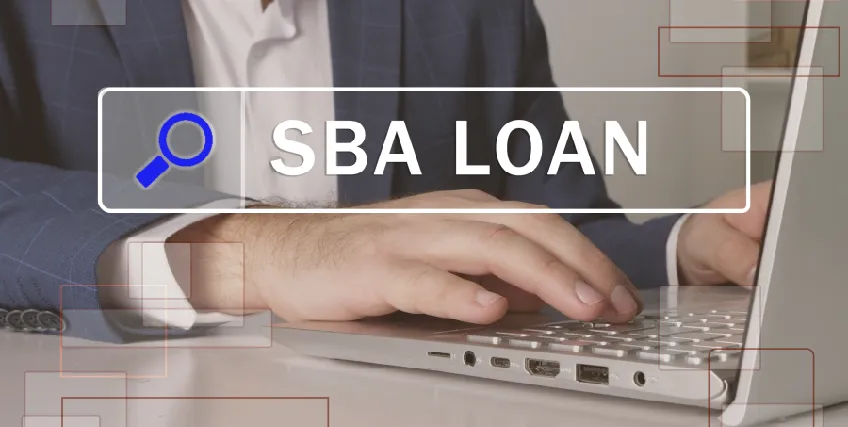
Any small business owner can easily speak of the importance a small business loan can have for their practice.
With the recent Federal Reserve raise on interest rates, it might seem counterintuitive for owners to apply for a small business loan. But this fact fails to tell the importance of a smart investment like a loan can make a tremendous difference for any small business, as you’ll see below.
In this article, you’ll learn about the most popular loans for small business owners, how they work, and each lender’s pros and cons.
The Importance of Small Business Loans for Owners:
With the COVID-19 pandemic slowly disappearing in our rearview mirror, small businesses had to take risks to maintain a healthy cash flow and annual revenue coming. Unfortunately, we are not out of hard times yet. The recent conflict, supply chain disruption, and food shortages are slowly putting a dent in the U.S. economy again.
With an increasing interest rate and U.S. dollar inflation, applying for a loan might seem like a bad idea, but it also could be the smartest, although riskier decision a small business owner can make today.
A smart business owner with a well-laid out business plan can take this time of uncertainty and use the power of a loan to put them miles away from the competition. While many owners are still fearful for the future, as it’s perfectly understood, you can take this time to stock up on inventory, prepare for expansion, acquire essential equipment, or hire expert personnel to be a part of your team, slowly but surely laying the foundation for your small business to succeed in the future.
For the smart entrepreneurs ready to make the best of what they have and catapult their business to success, let’s look at some of the best financing options that are available for you.
Examples of Small Business Loans:
Bank Loans:
Bank loans are the first option it comes to mind for business owners when they think of loans and for good reason. Banks have been the first and the oldest type of lender business owners have had for centuries.
According to the Biz2Credit small business lending index, banks approve only about 15.1% of business loan applications. This at first might seem like a bad thing for small business owners, but it also means that with a bank lender, you will have more working capital than other types of loan options.
Advantages:
Banking loans, as said above, can offer you more capital to maneuver your small business to success, up to $1.000.000 or more depending on how they deem and what you require for your small business. They also can offer fairly competitive interest rate, depending on the amount you require, a good average is around 2.50 to 7%. Although it can take into account many factors, from the amount you require, your small business annual revenue, personal guarantees, as well as your collateral. Those points can even work in your favor to lower your annual percentage rate on the bank loan.
It also offers you term loans, which means you will have a lump sum of capital available all at once. Banks’ term loans can go as far as $1.000.000, depending again, on the bank you choose and how they deem your small business loan requirement.
Disadvantages:
Bank loans are an arduous, long-drawn, exhausting process for any small business owner. If you’re looking for a fast business loan, bank loans might not be your best option. Banks also require your credit score to be quite good, up to 700 or more, they tend to prefer already settled businesses, with a good credit score, good business finance tracks, and good cash flow. They might also require collateral in the form of real estate or personal goods. Also, failure to maintain payments can lead you to some serious risks and damage your credit history.
SBA 7(a) Loans:
SBA 7 loans are, most likely, the most popular type of loan any small business owner looks for. Although they’re processed through a bank, they are secured by the small business administration, an institution that has the sole focus to help small businesses thrive. The SBA loans can offer term loans, be it for a small amount or a larger one for expansion.
With the government backing your loan application, banks tend to have an easier time approving your eligibility for a loan.
Advantages:
With the SBA 7(a) program, not only you’ll have an easier time applying for a loan, but also have the possibility of a fairly large small business financing program, up to $5.000.000.
Not only that, as the main focus of the U.S. Small business administration is to make small business owners thrive, you can have fairly competitive interest rates. Fixed rates tend to range from 8.5 to 11.5%. These rates can vary and even be reduced, depending on the status of your small business, the amount you require, and your credit history. They also have a variable payback time of up to 25 years depending again on the amount of the loan.
Disadvantages:
SBA loans tend to be a drawn-out process, with a lot of back and forth for qualifying for a government-backed program. For a new business, this might seem like a great option, but their minimum credit score is fairly close to banking too, (around 690, but it can vary.)
The maximum loan amount you need may also play a factor, in tandem with the age of your business. for new businesses that require a significant lump sum of cash, these might not be one of the best small business loans you can go after, as they will be drawn out. For these types of loans, it can also carry an extra charge in form of an origination fee, which can go from 0.5% to 3.5%, depending on the amount you request and the lender.
Business Lines of Credit:
Business lines of credit can be a great option for a small business loan that doesn’t require a larger injection of capital for their small business. It works similarly to a credit card, in fact, you can think of it as your small business credit line.
Lenders normally don’t require a credit history or a flawless credit report, and for any small business owner or startup, this can be one of the best small business loans they can acquire if they need a quick capital injection for their business needs.
Advantages:
A business line of credit has a fairly easy application process. Lenders are not very concerned about bad credit, as the required amount is not a deal-breaker.
With the business line of credit, borrowers can have a significant amount to cover urgent, business needs, normally up to $250.000. This amount can be very useful to quickly stock up on inventory, provide payroll to your team, or buy equipment. It’s a great funding option for those needs, and substantially faster than the more traditional bank loans.
Disadvantages:
Although a great way to quickly tap those unpredictable financial holes, you cannot request a larger amount of capital for a more ambitious endeavor. There’s also the fact that the APR is far greater than other, more competitive rates of SBA 7 loans or online short-term loans. Although technically you do not pay until you use the capital, if you end up using it, the interest rates are substantial — that can go from 5% to 20%, which can be even higher depending on the lender.
Your lender can also cancel your business line of credit at any time. If they ask to see your financial report and deem the line shouldn’t be open anymore. With it, canceling your line of credit and removing your financing needs instantly.
Collateral Real Estate Loan:
If you have a brick-and-mortar small business, you can use the real estate you perform your activities to your advantage. Collateral real estate loans can offer you options to secure a fairly large capital loan from lenders that are more willing to provide your business funding since you have hard collateral corroborating your request.
Advantages:
For small business lenders, the fact that the borrower has their commercial real estate to work as collateral for a loan request can weigh significantly on their decision, even reducing and facilitating the application process. With it, even if borrowers do not have a perfect personal credit score, bank statements, or polished business creditworthiness, they can decide favorably on your loan request. Sometimes, the only concern might be if you can achieve your monthly payments or pay interest.
You might also qualify for a larger sum of capital than you initially requested. It can also influence your monthly payments and reduce them, even whilst other methods require a good credit score requirement.
Disadvantages:
The biggest disadvantage of this type of loan is that you put your place of work at risk. With commercial real estate working as collateral, you’ll never fully own your place of work until the loan program is completed. Similar to personal loans, a missed monthly payment can put your real estate at risk.
Online Short-Term Loan:
This type of small business loan — with the advent of the internet — has gained popularity amongst small business owners. Online short-term loans offer options that other financial institutions — be it traditional banks, credit unions, SBA loans, or other working capital loan providers — fail to offer, which are speed and easiness.
With this type of small business loan, you can have a microloan or a small business term loan of up to $500.000 or more, with no need for down payments and with competitive interest rates.
Online lenders also tend to provide an easy online application process, that can be as short as a business day.
Advantages:
This is one of the best types of small business loans an owner can think of. Not only is faster than traditional financial institutions but is a much smoother and easier process to apply, as it can take as few as a couple of business days to have the loan amount in your business bank account. Normally, online lenders are not concerned about the borrowers’ credit history too much, their only concern it’s they’re able to make the monthly payments.
Online short-term loans are flexible, as the lenders can work with the repayment terms, having into account the needs and possibilities of the borrowers. And unlike what other borrowers might expect, they are not unsecured, in fact, online lenders are heavily regulated, and your loan request is secured, as well as the loan amount you’ve requested. You can also reach out to the lender with any questions you might have, or search their FAQs for any doubts.
Disadvantages:
For online lenders, tapping into the huge business opportunity that is borrowers who saw their loan requests denied by other financial institutions has led them to adopt a safety net for lending — that is the annual percentage rate for online short-term loans is significantly higher than a bank loan or an SBA loan.
Short-term loans of three to 18 months can have an interest rate of 10% and more, depending on the borrower and the type of loan it was requested. Other longer loans with a longer period can begin at 7%, but again, the interest rate can change due to other factors.
Other Types of Small Capital Business Loans You Can Look Into:
The small business loan programs discussed above are the most popular among small business owners who are normally looking for a bigger injection of capital. But if you need a smaller loan amount, there are other options you can look into:
Invoice Factoring:
With invoice factoring, also called accounts receivable financing, you sell your client’s unpaid invoices to a factoring company at a small discount. The outstanding company will give you a portion of the value of the invoices, then move on to collect the payment from your customers. After it collected the payment of all the invoices, it will offer you the funds, minus a small factoring fee.
Equipment Financing:
If you need equipment, equipment financing can be a great option for you. You approach a lender with a request for a piece of equipment, then he will front 80-90% of the value, only requiring you to do a small down payment. Then the equipment loan will work similarly to a lease, but at the end of the loan, you’ll fully own the equipment.
Merchant Cash Advances:
A merchant cash advance allows up to get a lump sum amount of money upfront from your future credit and debit card sales. You can get the money sometimes on the same business day but repayments are normally made daily or weekly, with significant interest rates.
Why Biz2Credit Can be The Best Type of Small Business Loan for Your Business:
At Biz2Credit, we offer very flexible business term loans or working capital for any type of small business owner. Apply with as little as 4 minutes and you can hear good news from us within as little as 72 hours.
Like Maryam, owner of HIIT BOX, reached out to Biz2Credit when she was consecutively turned down for working capital. We here at Biz2Credit heard her request for working capital and she was able to maintain her small business growth thanks to it.
FAQs
Who is best for small business loans?
Following are some of the options for the best small business loans:
- Credibly: It's the best if your credit score is poor.
- OnDeck: It is suitable for working capital.
- Bank of America: If you want to have the best experience at the bank,
- Wells Fargo: Best for small business line of credit.
- Accion Opportunity Fund: It is good for unreserved communities.
What is the best way to borrow money to start a business?
The U.S. Small Business Administration (SBA) offers various programs to aid small businesses in securing financing. Many programs provide business coaching, technical assistance, and flexible loan terms. The 7(a) Loan Program is one example, being the most popular loan guarantee program offered by the SBA.
What is the easiest SBA loan to get?
SBA Express loans, a smooth option within the 7(a) loan program, provide the most efficient application and approval process compared to other SBA loans. These loans offer flexible repayment terms, up to 25 years for real estate acquisitions and ten years for working capital, equipment, or inventory purchases.
What disqualifies you from getting an SBA loan?
There are severy reasons that can be a barrier to your qualification for an SBA loan,
- Credit history: Poor credit score
- Collateral: If you don't have enough collaterals or equity investments
- Business plan: Not having a strong business plan
- Debt: If you have too much of existing debt
- Criminal history: If there is a criminal record filed against you
- Industry: If your industry is prohibited, like gambling, real estate investing, or political lobbying
- Business size: If you don't meet the SBA business size
What are the 5 SBA requirements of a small business?
To meet the standards of small business, you should have these requirements:
- Your business should be profitable.
- It should be owned and operated independently.
- It should not be nationally dominant
- It should be present physically & operate in the U.S. or its territories.
- Your business should represent annual receipt calculation.




